
by Natalie Devitt
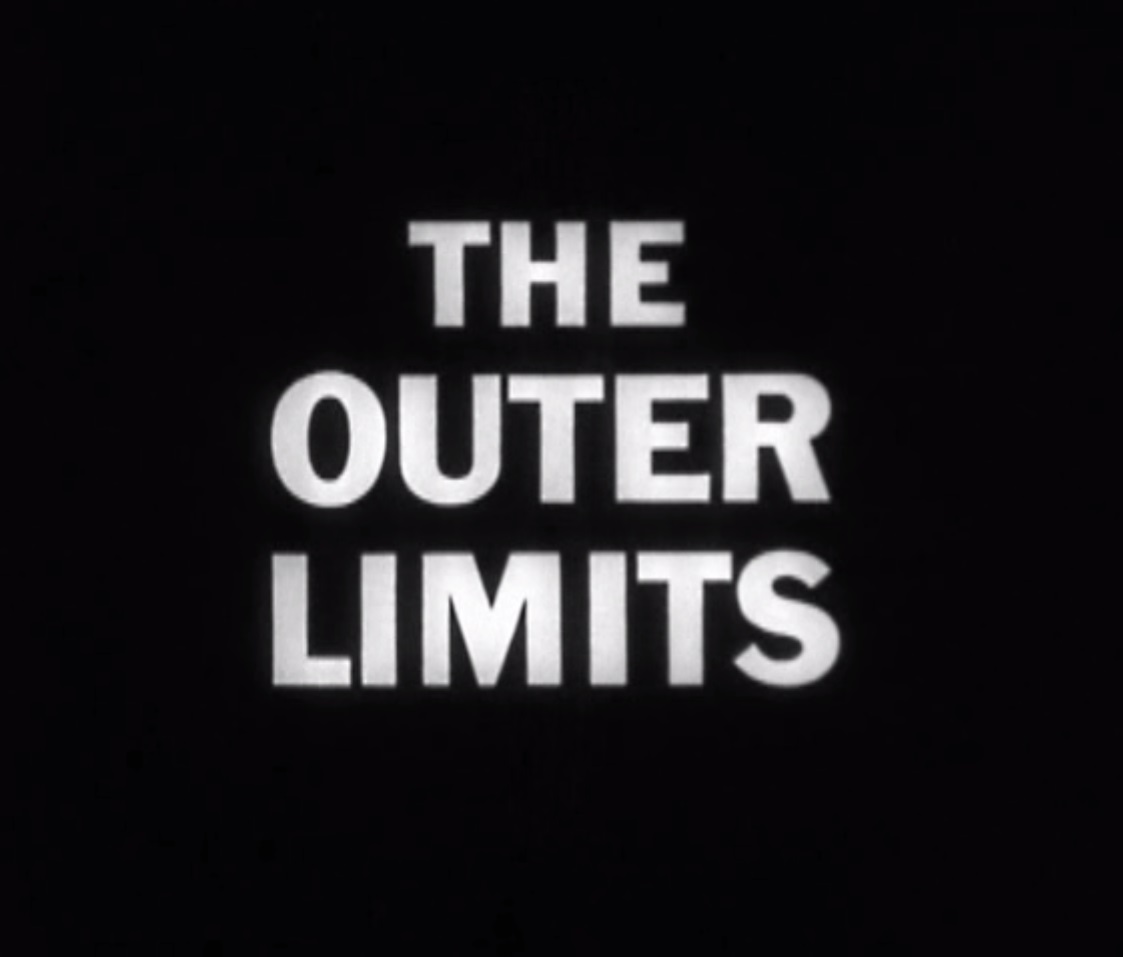
Recently The Outer Limits has primarily featured storylines about intellectually superior aliens and mutants treating people like something easily controlled or shaped to suit their needs. Episodes have included stories about a man-turned-mutant using his telepathic abilities to keep members of his crew prisoners on another planet, an alien holding a group captive in an old mansion until they can provide him with important information, a man and a woman being thrown into a deadly game for the entertainment of creatures from another planet, and an alien posing as a tutor so he can recruit children as tools for his nefarious plans.
The Mutant, by Allan Balter and Robert Mintz
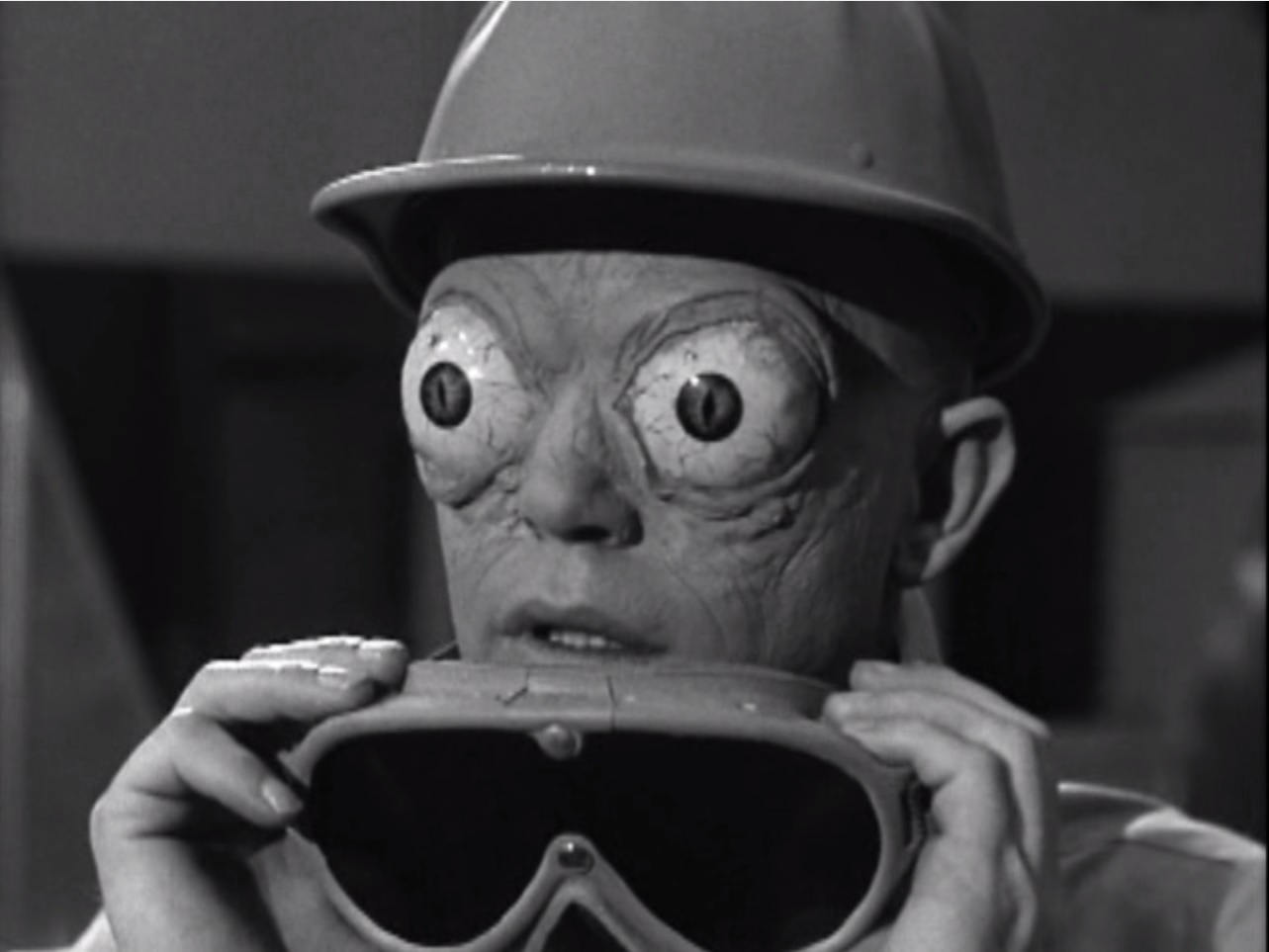
In The Mutant, Larry Pennell, an actor you may have seen in anything from Thriller to Have Gun – Will Travel, plays Evan Marshall, a man who travels to a planet that seems to be “suitable for colonization by Earth‘s overflowing population.” The planet, Annex One, resembles Earth. He arrives there intending to investigate the death of a scientist stationed at planet.
Marshall is instructed to wear special goggles while outside as protection from the planet’s harsh weather conditions, which can include anything from “constant daylight” to severe storms. A member of the team, played by Warren Oates (he recently appeared on The Twilight Zone’s Number 7 is Made Up of Phantoms), plays Reese Fowler. Fowler assures Marshall, “You begin to feel like they [the goggles] are a part of your person, which is the way that we feel.” Fowler fails to mention to Marshall that he rarely removes his goggles in order to hide his swollen eyes, which started protruding after he was accidentally caught in a storm without his protective eyewear. This incident resulted not only in bulging eyes, but it also gave Fowler telepathy and the ability to kill people with just a touch of the hand.
Fowler is abusing his new powers, keeping everyone on Annex One as “his prisoners” as he frantically searches for a cure to his mutations. Members of the group try to warn Marshall about Fowler. All the while they try to prevent the mutant from reading their minds as they devise a plan to return to Earth. But as Fowler warns them, it is nearly impossible for anyone to quiet their thoughts for long.
Between Fowler’s telepathic powers being almost inescapable and the effects of endless daylight on a person‘s sanity, The Mutant does a pretty good job of establishing a sense of dread. Further, I think the sight of Fowler’s eyes will be forever seared into my mind. One aspect of the episode that certainly did not work very well was the romantic secondary plot, which was not very convincing and did not do much to support the main plot. But overall, I would say The Mutant is strong enough to deserve three stars.
The Guests, by Donald S. Sanford
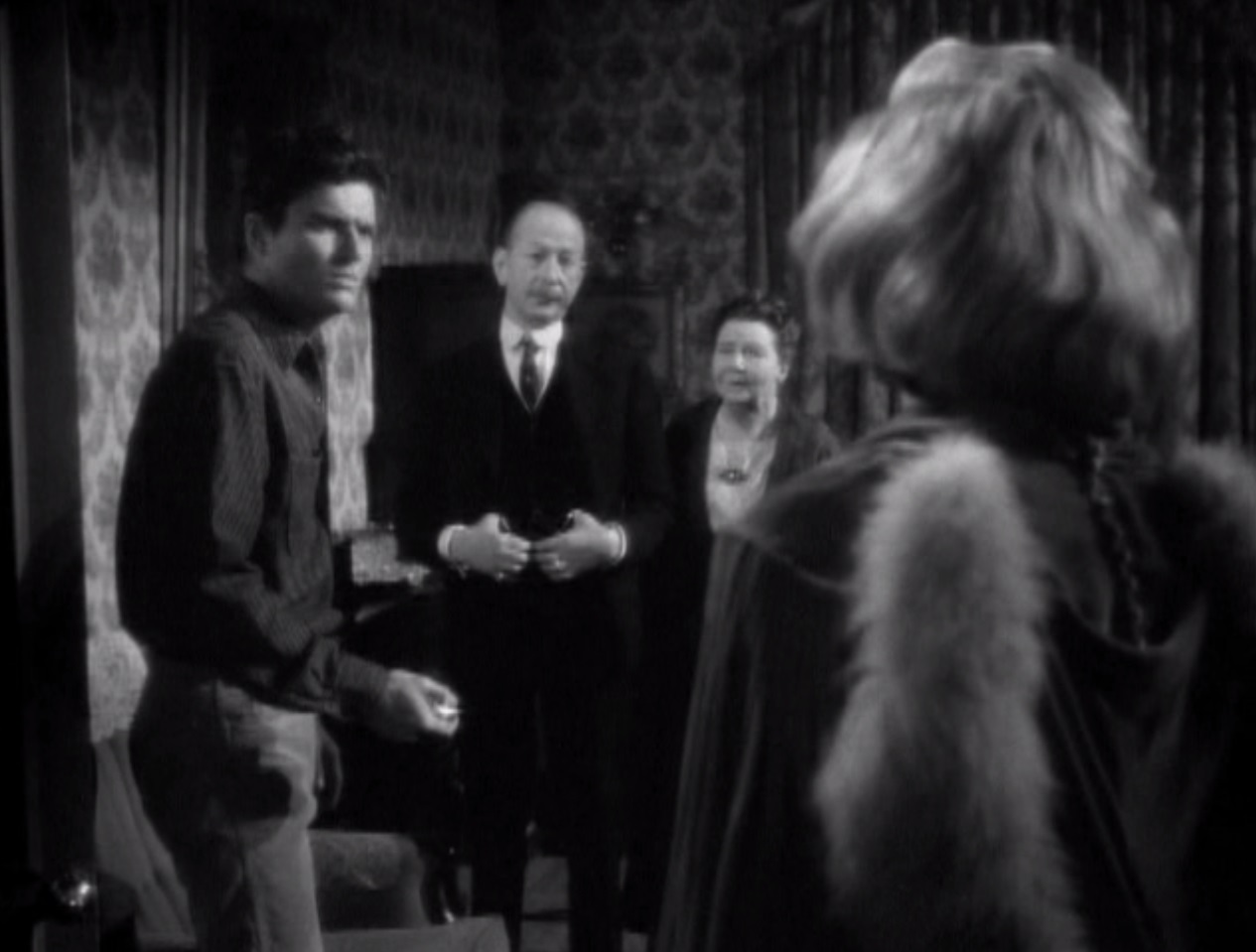
The Guests, opens on an elderly man being pursued on foot by an alien through the woods. The man collapses as a young man, Wade (Geoffrey Horne, from The Twilight Zone’s The Gift), stops to offer a hand. As the extraterrestrial vanishes, a mansion appears in its place. Wade picks up the old man’s pocket watch, inside of which is a very old picture of a young woman that appears to have been taken in the 19th century. As Wade approaches the house, the front door seems to open itself.
Upon entering the house, he spots the same young woman in the picture, Teresa, looking exactly as she did in the old man’s photo. Wade also meets another fellow, and two other women, one of which is played by none other than the famous Gloria Grahame. They are all wearing clothing from different time periods. Not thinking much about their outdated clothing, Wade goes on to tell them about the old man. Teresa does not miss a beat, responding rather coldly with he must be “gone by now.” She then adds, “He’s been dead for a long time.”
Wade tries to leave the house at once, but he is pulled back in, then up the stairs, where he finally comes face to face with their host: a glowing version of the creature from this season's The Mice. Their captor says he is looking for “the factor that will balance the equation.” After being interrogated by the alien, Wade is told by the others, “You won’t leave here, young man. None of us will ever leave here.” The other guests may be content to remain frozen in time, but Wade is determined to escape.
The whole alien holding people captive in a big strange mansion sounds an awful lot like this season's Don’t Open Till Doomsday, and while The Guests is not quite as strong, it almost succeeds in capturing the same creepy atmosphere. If there is one thing that The Outer Limits does extremely well, it is create mood. While you can predict this story‘s outcome, there is a scene involving a character rapidly aging that has stayed with me since I watched it.
I am kind of disappointed that I did not enjoy Gloria Grahame in this entry as much as I would have liked. I have seen the Oscar winner shine in a wide range of roles. This performance is not bad, just a little uninspired. Given her impressive body of work, I am not sure that matters very much. In any case, this entry receives three stars.
Fun and Games, by Robert Specht and Joseph Stefano
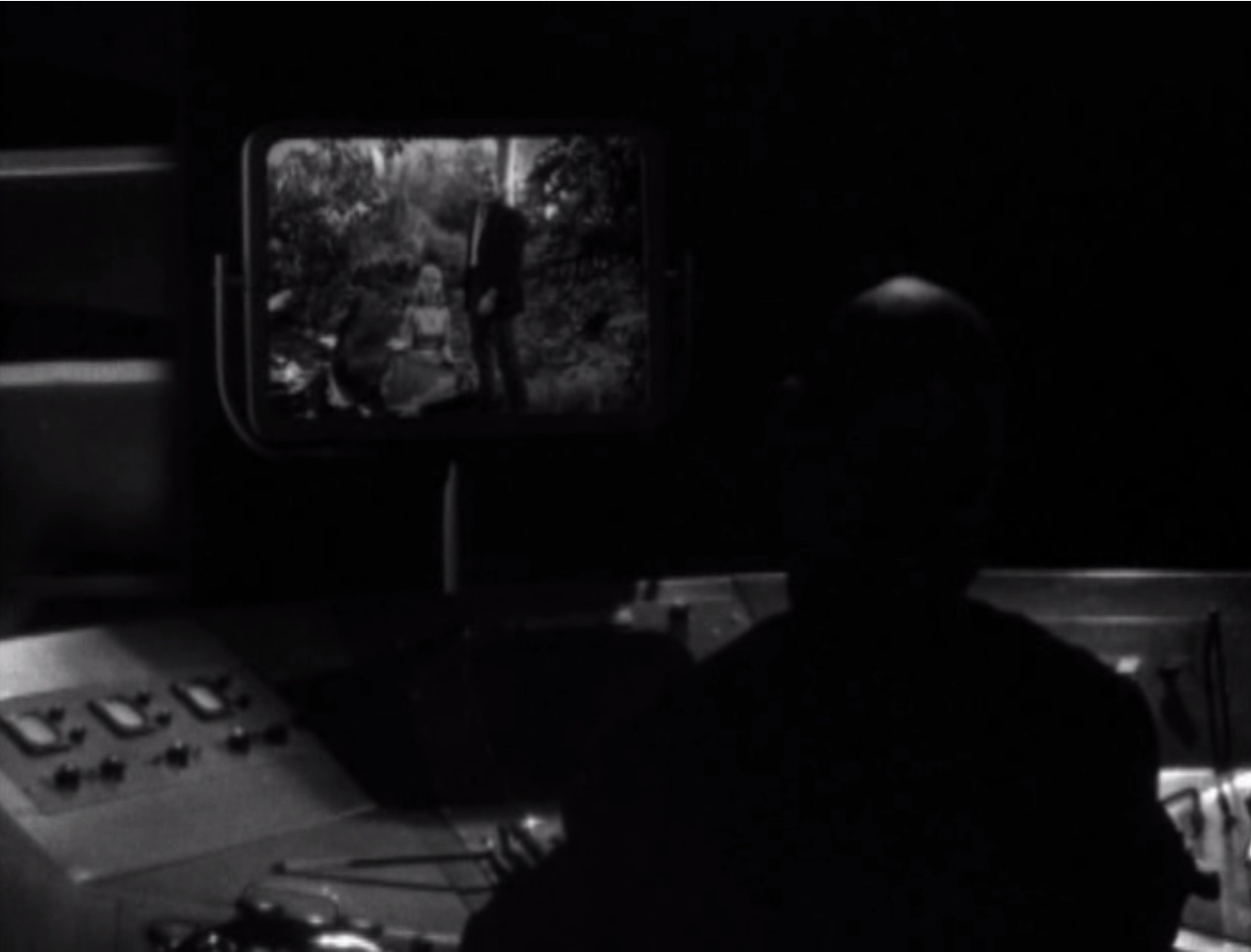
Fun and Games tells the tale of a man and a woman, played by Nick Adams (whom you might know from the TV show, The Rebel) and television actress Nancy Malone. They are teleported to another planet, Andera, where they are informed by a shadowy figure that they have been selected to represent the men and the women of Earth in a “rather terrible kind of game” for the amusement of their kind. The humans, Mike and Laura, will fight against one male and one female representative from another planet, the Calco, in a fight “until the death.“ The creature insists that they will not be forced to participate, but if they choose to not join, their “opponents will win by default.“ Most importantly, if they lose the game, Earth will be destroyed.
The Calco resemble apes, and are so primitive that they use boomerangs as weapons instead of guns. Participants are prohibited from using guns at any time during the game, but when Mike and Laura discover that one of their adversaries murdered its own partner in order to stretch out its own food supply, they realize just what they are up against. Do they really stand a chance against such a ruthless opponent?
The two lead actors really deliver some fine performances in this hour of the series, which almost succeeds in distracting from how goofy and unthreatening the Calco appear. Fun and Games revisits important moments in the story, exploring different decisions characters can make. I imagine watching the same thing over and over is enough to drive some viewers insane. Personally, I really enjoyed it, but I could see how it could feel like padding to fill the entire hour. Luckily, the conclusion has some interesting twists. Fun and Games is in my opinion the best entry of the series this past month, which is why it earns three and a half stars from me.
The Special One, by Oliver Crawford
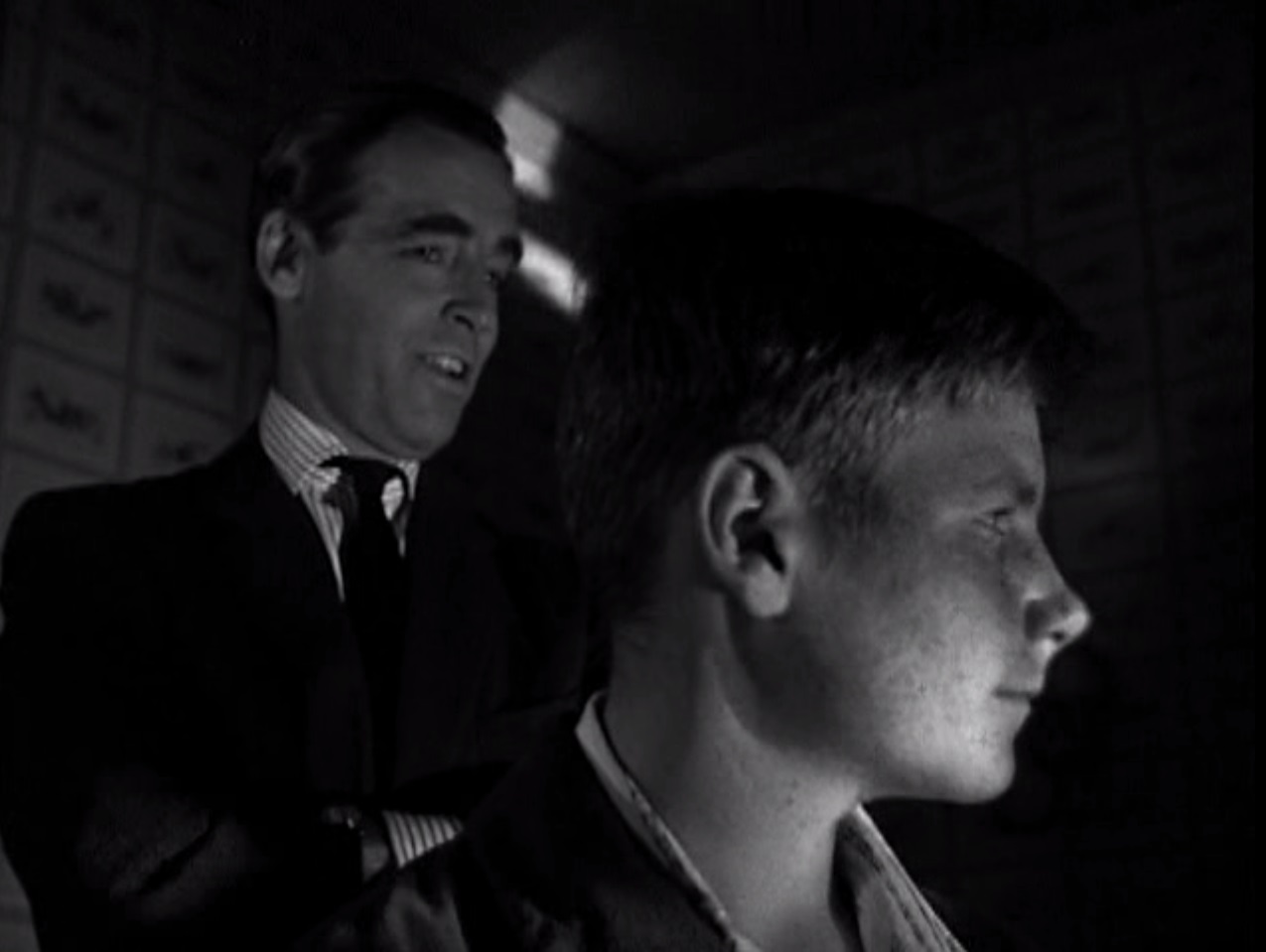
One stormy night, a family is visited by stranger who goes by the name of Mr. Zeno. He claims to be “from the Educational Enrichment Program,“ and expresses his interest in tutoring their son, Ken. But not long after studying with Mr. Zeno, who is really an extraterrestrial in disguise, Ken begins behaving strangely. When Ken’s dad (played by Hitchcock-thriller Shadow of a Doubt’s MacDonald Carey) wants him to do anything besides homework, Ken tells him, “Sorry, Dad. I’ve got to study. Mr. Zeno will be here in a minute.” Also, Ken’s father, Roy, thinks it is strange that Zeno does not seem to give advance notice when he is coming over to their house, and how he seems to be spending an increasing amount of time with his son.
Roy stumbles on a periodic table that Ken has been working on. The strange thing is that it includes 23 extra elements. This leads to Ken‘s father to tell his buddy about the situation, who states, “I wouldn’t let my boy join the group.” When Dad confronts his son about the extra elements on the his periodic table, Ken simply states that they are not there “yet,” but that the “balance is in the future.” Ken’s mother accuses Roy of being jealous of Mr. Zeno. On top of all of that, the Education Enrichment Program’s office has never heard of Mr. Zeno and claim their tutors do not do house visits. So, what does a creature from outer space need with Ken?
The Special One is not really my favorite episode about aliens plotting to take over the world, but it's not really a bad one, either. The acting is strong, except for a somewhat awkward scene where Mr. Zeno tries to get Ken’s dad to commit suicide, which also reminds me of a similar scene in a previous episode, Corpus Earthling. One thing the episode really has going for it is its special effects, which are surprisingly good, especially for television. Three stars.
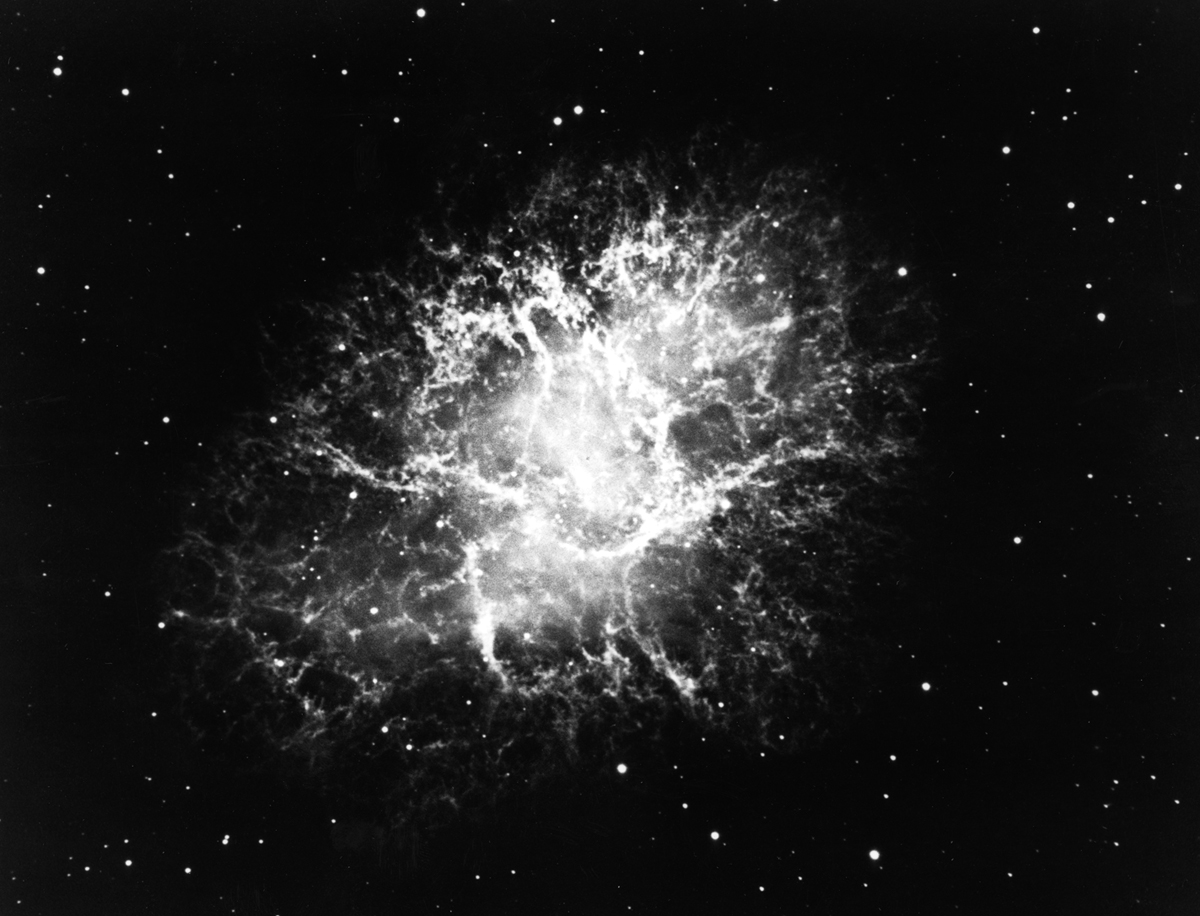
It has been another enjoyable month of the series, which seems to have been filled with even more than usual number of narratives about people being easily influenced by extraterrestrial beings. Given that this month included one very good episode and three good episodes, I am confident the remaining month of the season will also entertain.
[New to the Journey? Read this for a brief introduction!]
Follow on BlueSky



![[March 6, 1969] Different points of view (<i>Star Trek</i>: "The Cloud Minders")](https://galacticjourney.org/wp-content/uploads/2024/03/690306title1-672x372.jpg)
![[January 16, 1969] Mixed messages (<i>Star Trek</i>: "Let That Be Your Last Battlefield")](https://galacticjourney.org/wp-content/uploads/2024/01/690116title-672x372.jpg)
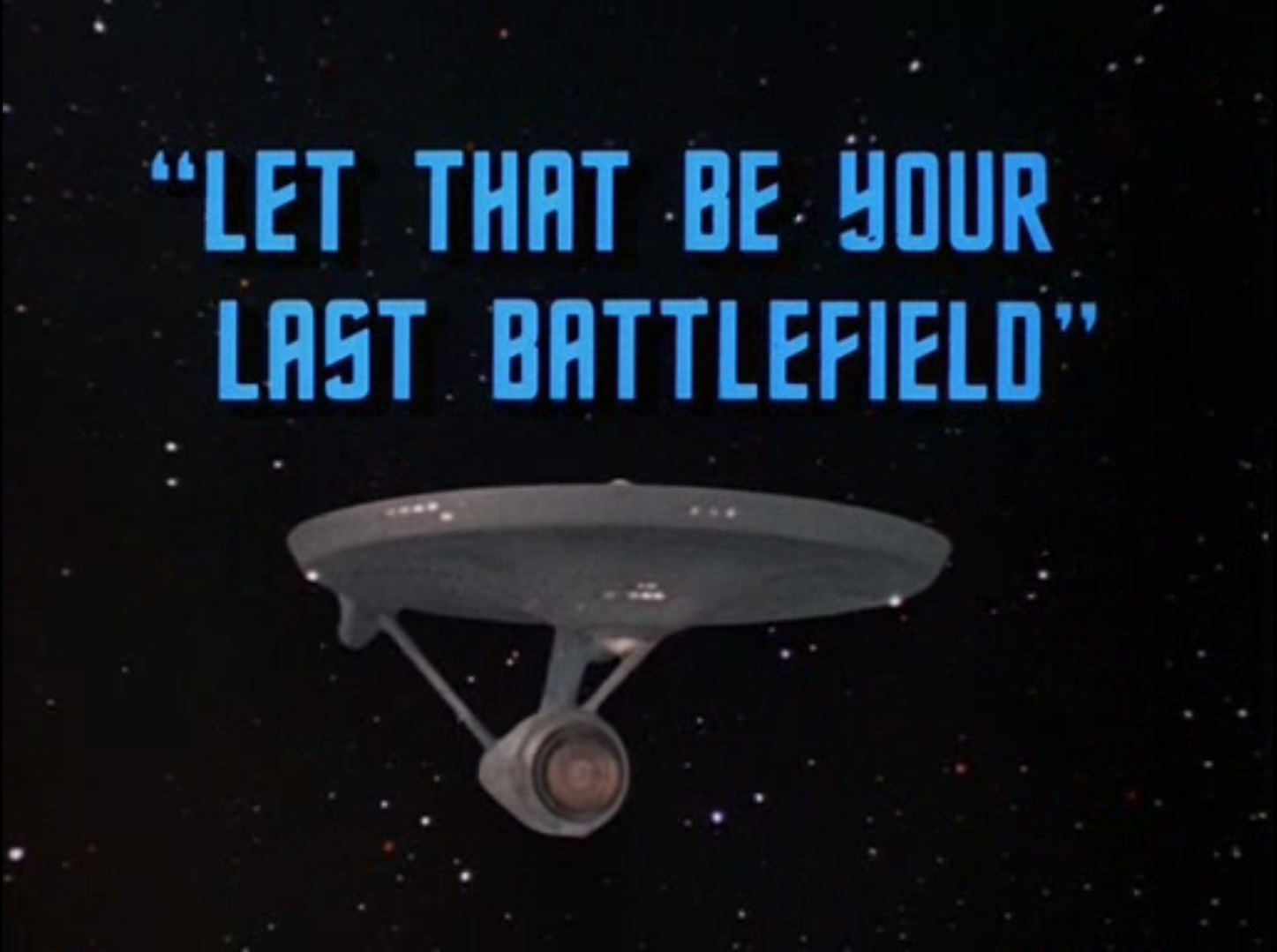
![[January 12, 1967] Most illogical (<i>Star Trek</i>: "The Galileo Seven")](https://galacticjourney.org/wp-content/uploads/2022/01/670112title-672x372.jpg)

![[April 12, 1964] Mold of a Man (<i>The Outer Limits</i>, Season One, Episodes 25-28)](https://galacticjourney.org/wp-content/uploads/2019/04/640412b-672x372.jpg)







